In today’s fast-paced world, many of us constantly seek ways to boost our energy levels and stay focused throughout the day. While there are countless options available, one particular beverage has been gaining popularity for its ability to provide a natural and sustained energy boost: tea. Not all teas are created equal, so we will be ranking the best tea for energy that can help you power through your day with vigor and vitality. Whether you’re looking for a morning pick-me-up or an afternoon boost, these teas will invigorate your senses and keep you alert.
One may be asking themselves, however, why choose tea when there are dozens of energy-boosting products on the market? From plain old coffee to fancier energy drinks, there is certainly no lack of options. So why tea?
Why you should drink tea for energy:
- Natural Caffeine: Tea contains natural caffeine, which provides a gentle and sustained energy boost without the jitters and crashes associated with coffee.
- L-Theanine Synergy: The unique combination of caffeine and L-theanine in tea creates a calm alertness, promoting focus and concentration without anxiety.
- Antioxidant Powerhouse: Tea is rich in antioxidants, which protect your cells from damage and promote overall health and well-being.
- Variety of Flavors and Benefits: With countless varieties of tea available, you can choose the perfect one to match your taste and desired effects. Some teas offer additional benefits like digestion support, stress relief, and improved sleep.
- Hydration and Wellness: Drinking tea provides hydration, which is essential for optimal energy levels and overall health.
- Accessible and Affordable: Tea is readily available and often more affordable than other energy-boosting drinks, making it a budget-friendly option.
- Healthy Alternative: Tea offers a healthier alternative to sugary drinks and energy drinks, providing energy without the negative health consequences.
These are just some of the reasons why tea is the best choice for natural, sustained energy boosts. So next time you need a pick-me-up, reach for a cup of tea! And luckily, we have just the brews in mind to ensure an energized day. As always, we at StudyFinds have researched across multiple expert sources to bring you today’s list of the top seven best teas for energy. Don’t agree with our suggestions or feel we missed out on a good one? No worries. We would love to hear from you in the comments below!
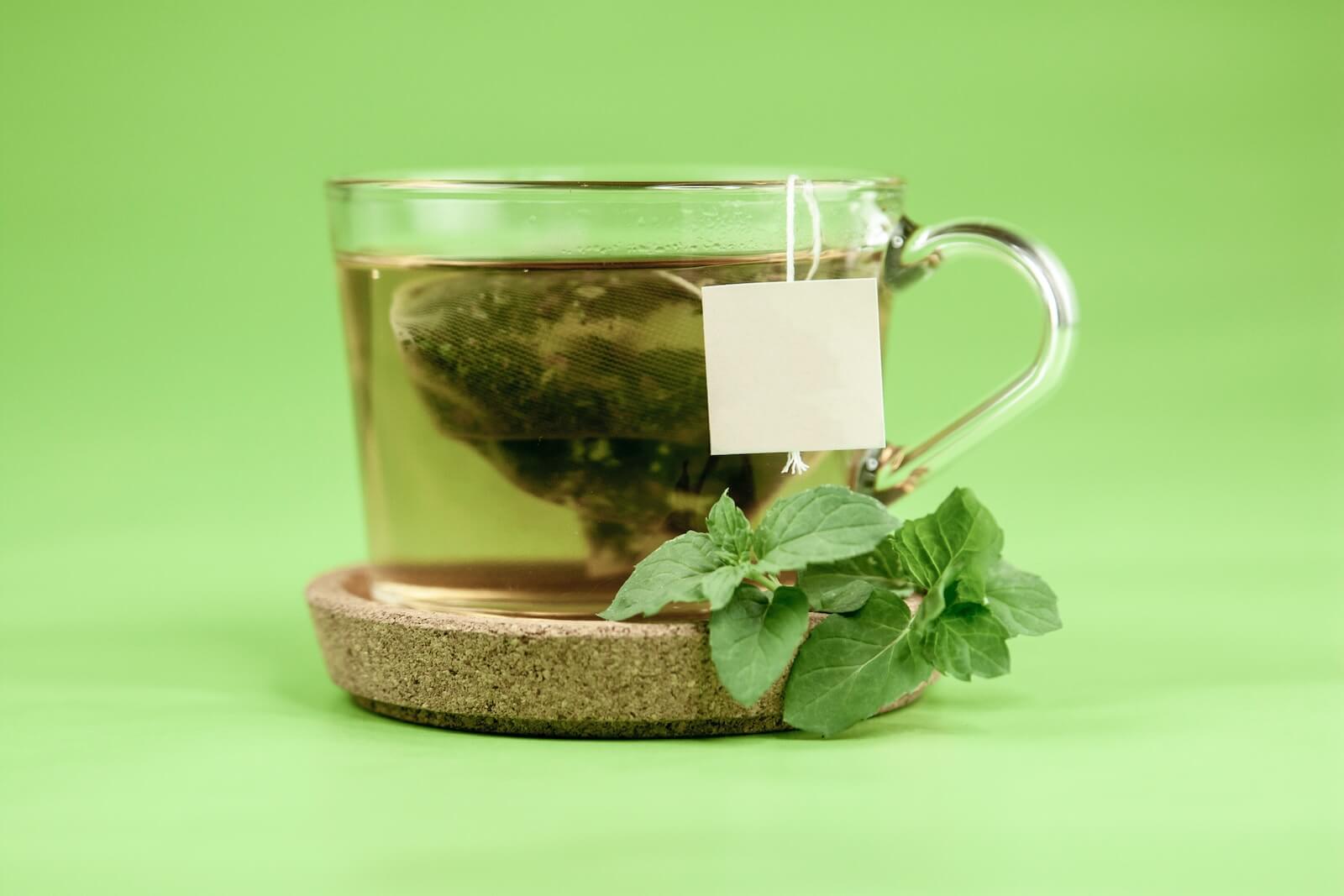
The List: Best Tea for Energy, According to Experts
1. Green
Green tea, also known as camellia sinensis, is a type of tea that has gained immense popularity due to its numerous health benefits and unique flavor. Originating in China thousands of years ago, green tea is now widely consumed across the globe. “Compared to other varieties, green tea is lower on the caffeine scale and clocks in at roughly 35 mg of caffeine per cup. This means you can enjoy a few cups of green tea throughout the day without the risk of caffeine overload,” says Pique.
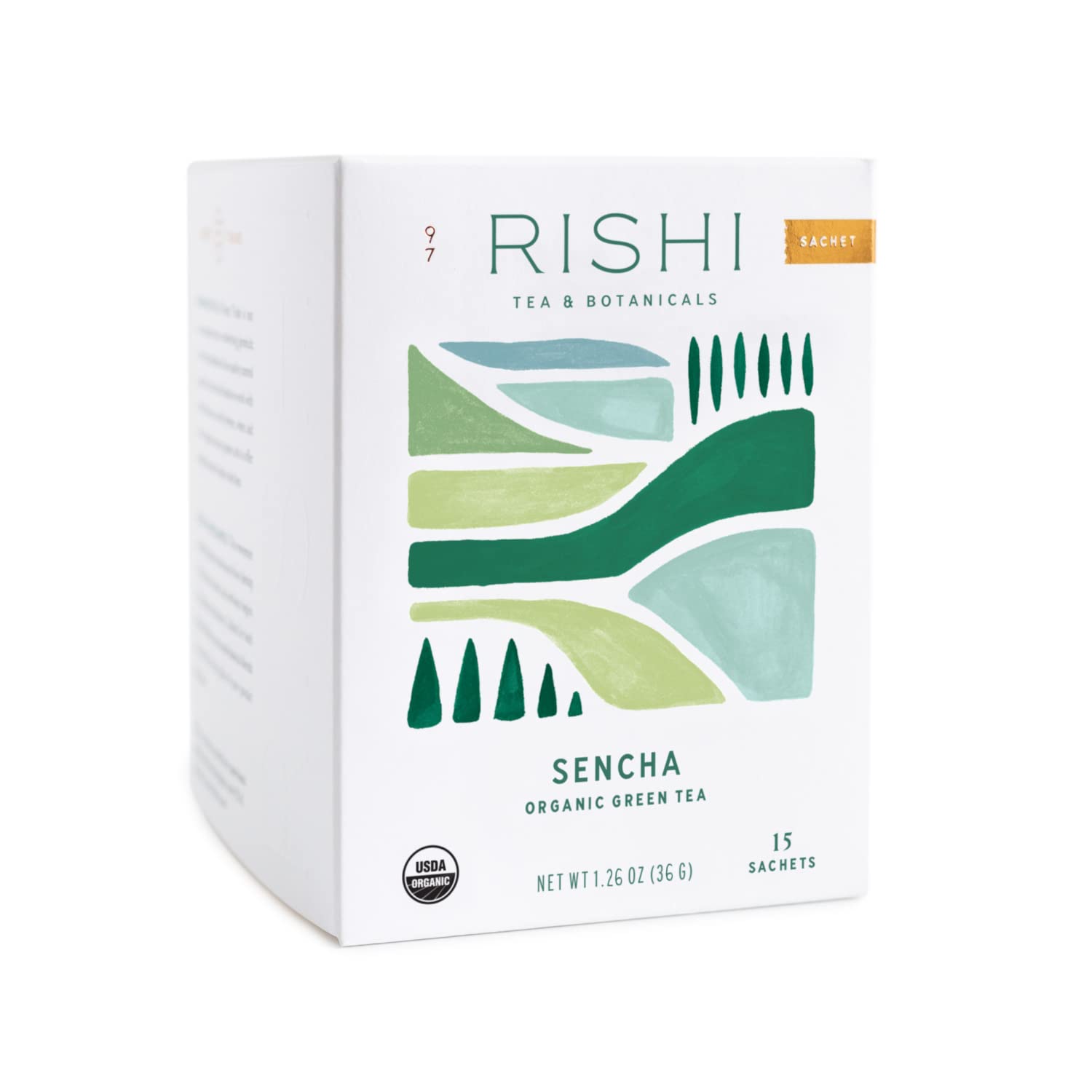
“For those who can’t do without their daily dose of caffeine, green tea is a great choice. It contains caffeine, which means it gives you all those associated benefits – increased energy, focus, and alertness. However, it also contains L-theanine, a compound that helps to balance out the caffeine by making you feel calmer and less stressed,” writes Nutratea.
“This tea can also give you a more even energy boost thanks to the presence of an amino acid known as L-theanine. L-theanine helps to slow the body’s absorption of caffeine. This allows the body to process the caffeine more effectively and results in a longer-lasting energy boost. Since caffeine is absorbed more slowly, drinking green tea won’t give you the jitters or withdrawals associated with a cup of coffee. Green tea also contains small amounts of vitamin C that can boost immune health and protect energy levels,” adds Sencha Tea Bar.
2. Pu-erh
Pu-erh tea, also known as pu’er tea, is a unique type of fermented tea. With a history that spans thousands of years, Pu-erh is highly regarded for its distinct flavor and numerous health benefits. “These aged teas are dark, rich, and decadent and brew up a deep reddish-black color similar to that of a strong cup of coffee. The aging process reduces the tannins present in the tea, so pu-erhs are velvety smooth, with a full body and satisfying finish. Pu-erh teas are also high in caffeine, containing about half as much as coffee per cup,” states Artful Tea.
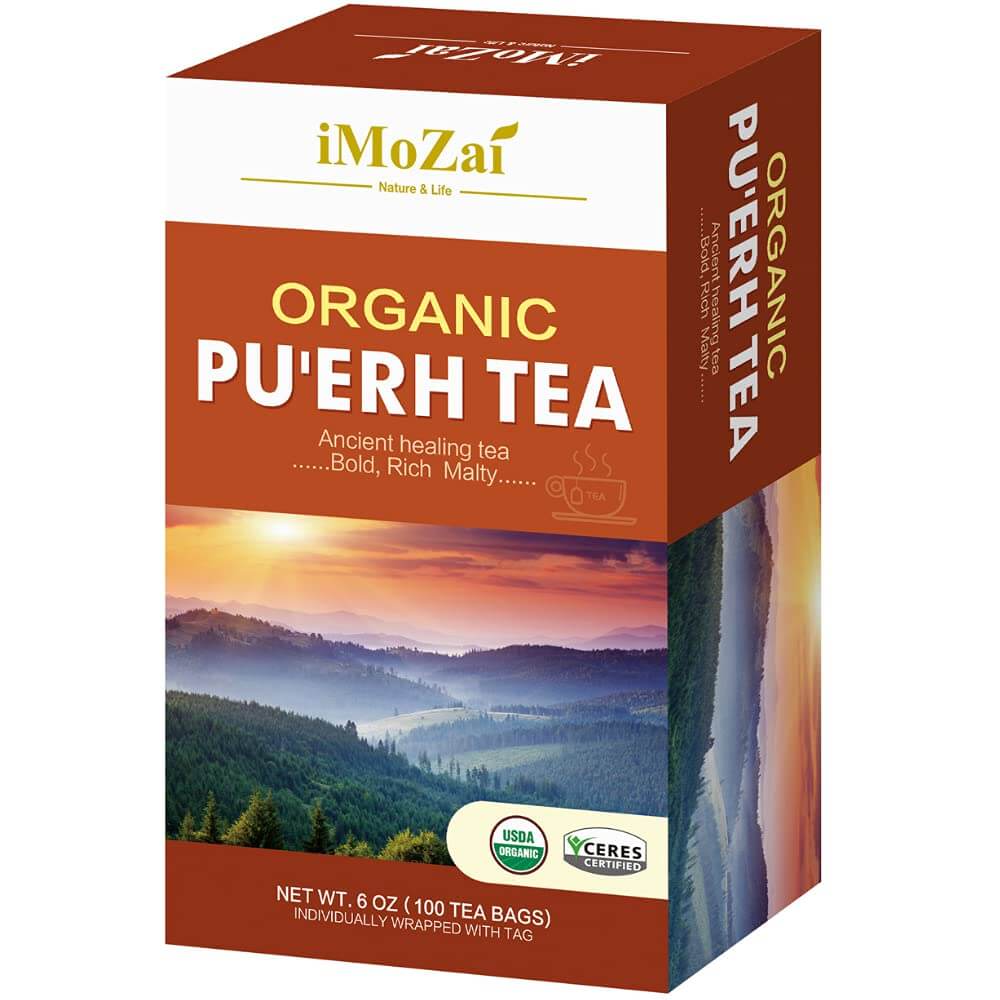
“At first glance, this loose-leaf tea may appear to be the same as black tea. However, the flavor is deeper, earthier, and more intense. Pu-erh contains more caffeine than white, oolong, and green tea. It also provides amino acids, including L-theanine. You can drink pu-erh tea for energy, although it’s typically not as popular as other caffeinated drinks for energy consumption,” notes Live Zesty.
“Pu-erh is a type of dark fermented tea from the Chinese Yunnan province. There are many types of pu’erh tea, and each of them will have a different amount of caffeine. Pu-erh is one of those teas that may actually cause tea drunkenness. Tea drunkenness is usually caused by caffeine and other compounds in tea. Pu-erh is prepared in smaller teapots and re-steeped many times, sometimes even more than 15. Studies showed that fermented pu-erh would have much higher levels of caffeine than non-fermented pu-erh tea, and even much higher than most black teas,” comments Simple Loose Leaf.
3. Matcha
Originating from Japan, Matcha has been an integral part of traditional Japanese tea ceremonies for centuries. However, its popularity has now spread across the globe, captivating tea enthusiasts and health-conscious individuals alike. “This is a great tea if you want to take a little more time to slow down and enjoy the tea-making process. Matcha is made from powdered, shade-grown green tea that is whisked into water. Compared to other green teas, matcha provides more caffeine and L-Theanine, as you are consuming the leaves instead of simply infusing them,” explains Live Zesty.
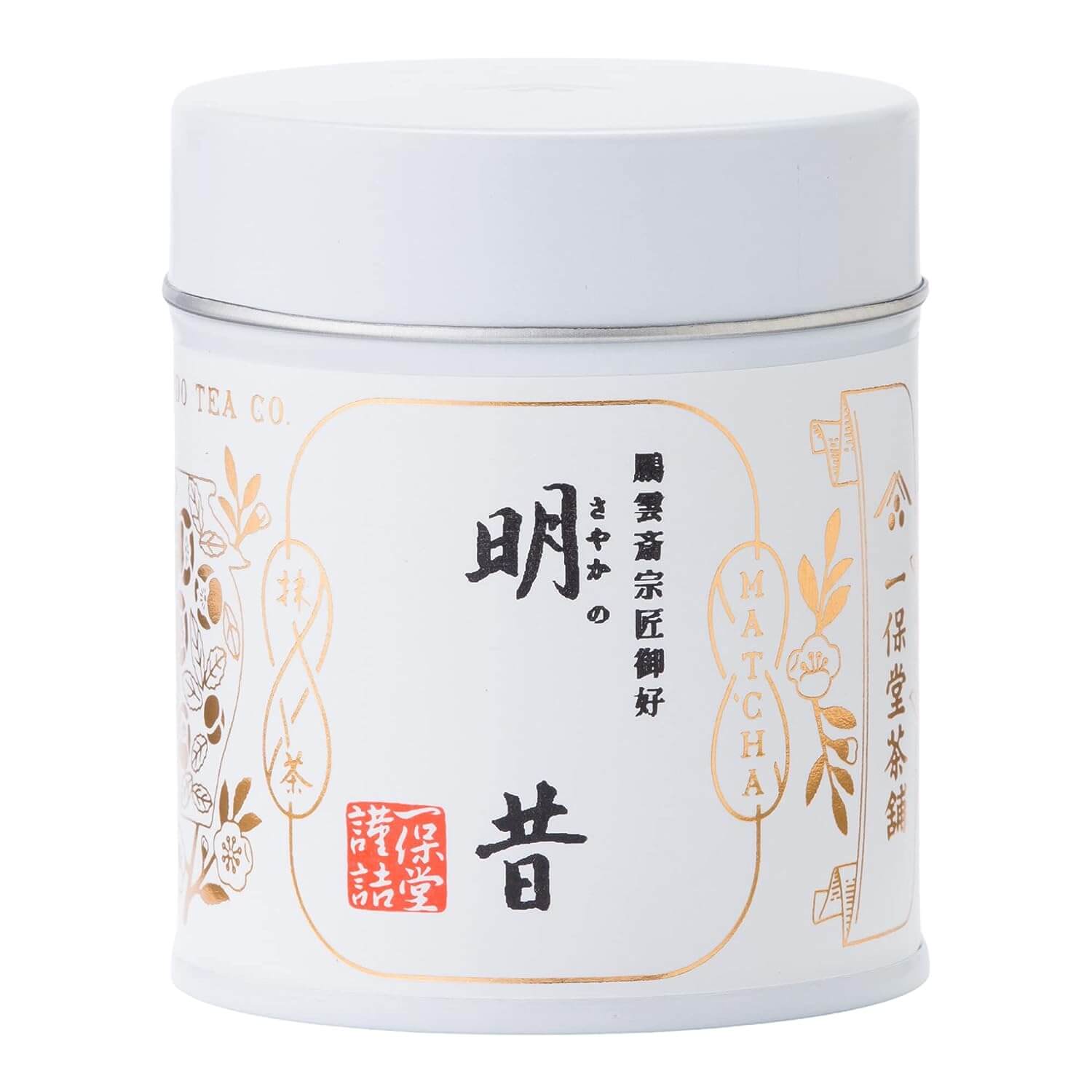
“A version of green tea, matcha tea, goes through some extra processing to break it down into a fine powder. Unlike green tea leaves, this powder is typically whisked into a froth with milk or water and consumed. Like green tea, matcha tea also contains around 40 mg of caffeine per cup. Stick to three to five cups per day for best results,” describes Fire Belly Tea.
“Matcha is traditionally prepared by whisking up the powder with hot water in a bowl, but can also be enjoyed when added to smoothies, lattes, and baked goods. When you drink matcha, you’re consuming the entire tea leaf, rather than an infusion of tea leaves. Matcha contains a concentrated amount of the many healthful and energizing properties of green tea. The shading process also elevates the levels of both caffeine and l-theanine in the tea, resulting in a stimulating, energizing tea that is said to contribute to clarity and focus,” raves Artful Tea.
4. Yerba Mate
Originating from the indigenous Guarani people in the region, this herbal infusion is known for its unique taste and numerous health benefits. With a rich cultural history and a growing fanbase, Yerba Mate has become a beloved beverage worldwide. “Yerba mate is a South American tea that’s usually placed amongst the herbal teas. However, yerba mate tea is one of a few infusions not made from the Camellia sinensis tea plant that does provide caffeine. How much caffeine it provides greatly depends on how you prepare it. The traditional style in South America (loose leaf tea in a gourd) will result in much more caffeine than tea bags, for example,” recommends Live Zesty.
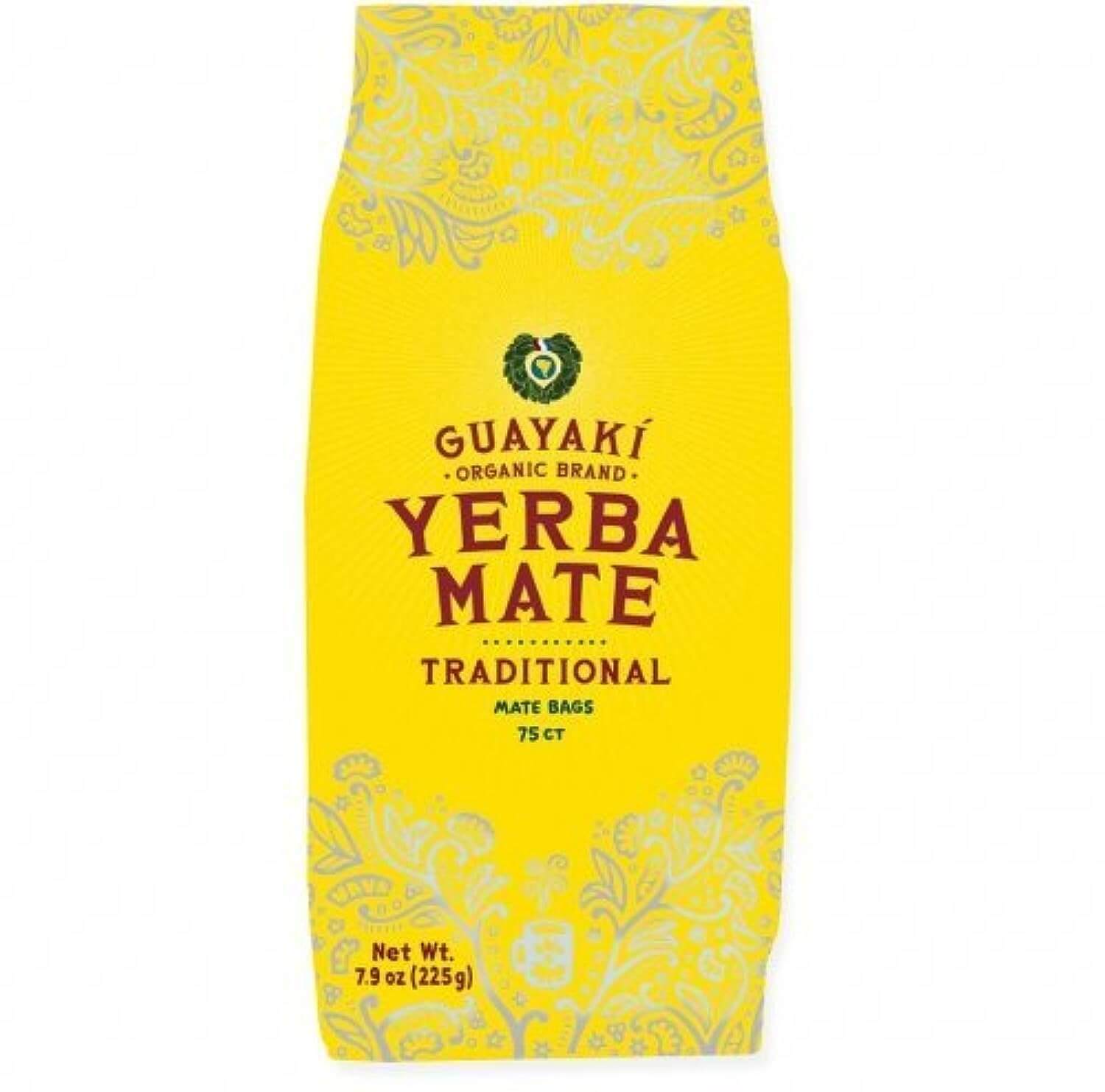
“Yerba mate is a popular drink in countries like Brazil, Chile, Peru, and Argentina. Mate is made from the leaves of a species of the holly plant. While unrelated to true tea, yerba mate does contain caffeine and is well-known for its energizing effects. Mate is traditionally prepared in a hollow gourd and consumed using a filtered straw known as a bombilla, but it can also be prepared in a mug or cup. Many people experience the caffeine present in mate, which is sometimes referred to as mateine, differently than they experience the caffeine present in other beverages,” reports Artful Tea.
“Yerba mate is well-known by Americans as an ingredient in energy drinks. The tea features a smoky flavor with heavy, earthy notes. It has a bold flavor that is comparable to coffee and a strong aroma. Yerba mate contains more caffeine than green tea but still less than a cup of coffee. This South American tea also contains theobromine, a compound similar to L-theanine in that it increases energy levels without jitters. Studies also show that yerba mate can increase endurance and exercise performance,” says Sencha Tea Bar.
5. Black
Black tea is one of the most widely consumed types of tea in the world, known for its bold and robust flavor. Originating from the Camellia sinensis plant, black tea is a fully oxidized tea that undergoes a unique processing method. “They are dried, wilted, and oxidized the longest out of all. It gives black tea its unique, robust, malty flavor and deep brown color. Black tea contains the most caffeine out of all other teas. It makes it the best tea without any nasty side effects for tons of energy,” writes Fire Belly Tea.
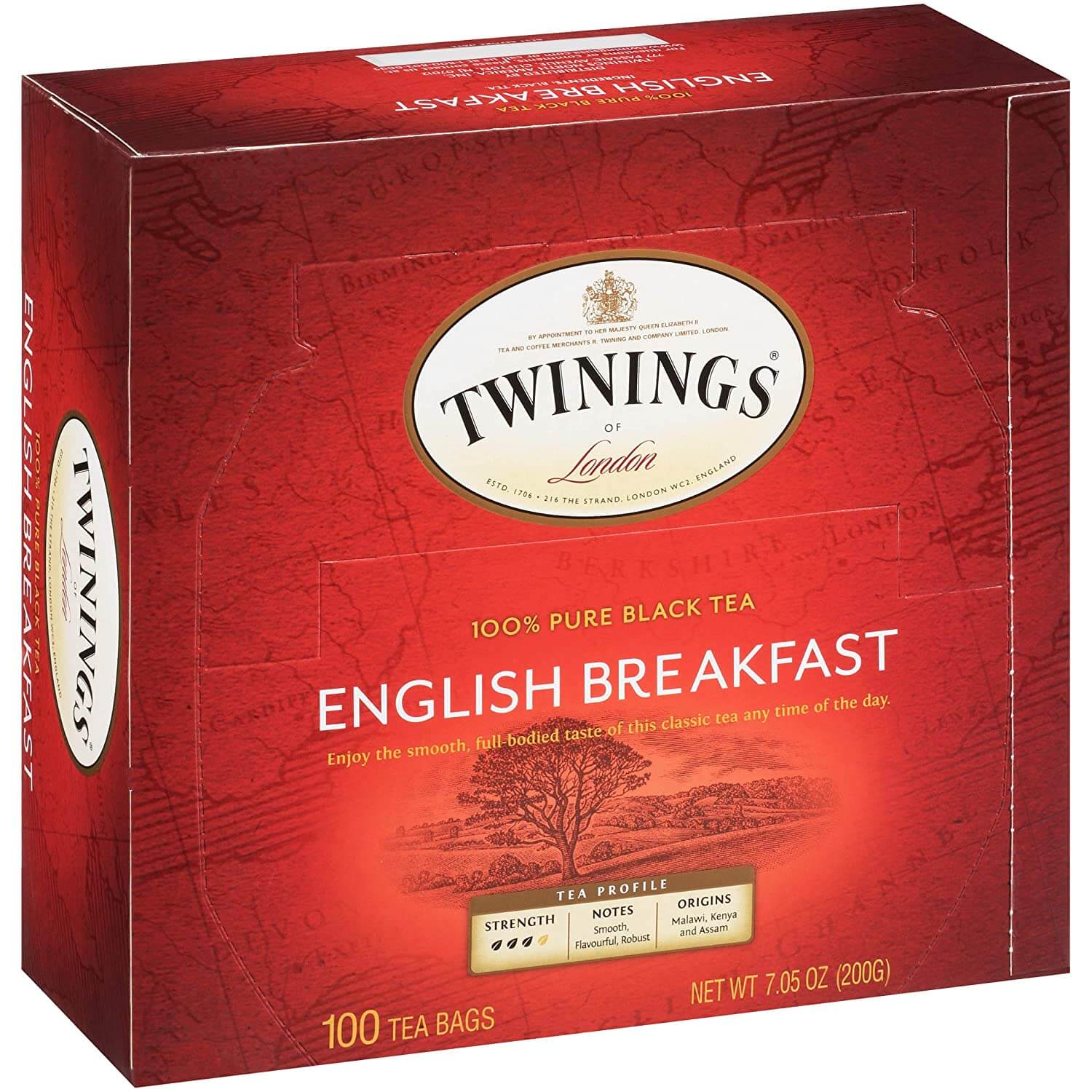
“Black tea is one of the most popular and best teas for energy. Usually, a standard cup contains about half the amount of caffeine compared to coffee. However, it also provides the amino acid known as L-Theanine, which slows down the onset of caffeine and enhances focus,” adds Live Zesty.
“According to the FDA and USDA, there are nearly 47 mg of caffeine in each cup of black tea. The caffeine content in black tea may vary from 60 to 90 mg, which is half the amount contained in coffee. However, black tea’s caffeine content is not the highest. Several black tea types have less caffeine than white tea. Tea made from the younger leaves has more caffeine in it,” explains Sense Asia.
6. Oolong
Oolong tea is a traditional Chinese tea that falls somewhere between green and black tea in terms of oxidation. With its rich history dating back centuries, Oolong tea has become a beloved beverage around the world for its unique flavor. “Oolong also goes through a slight fermentation process. Most oolong teas are dark in color and have an earthy and malty taste,” notes Fire Belly Tea.
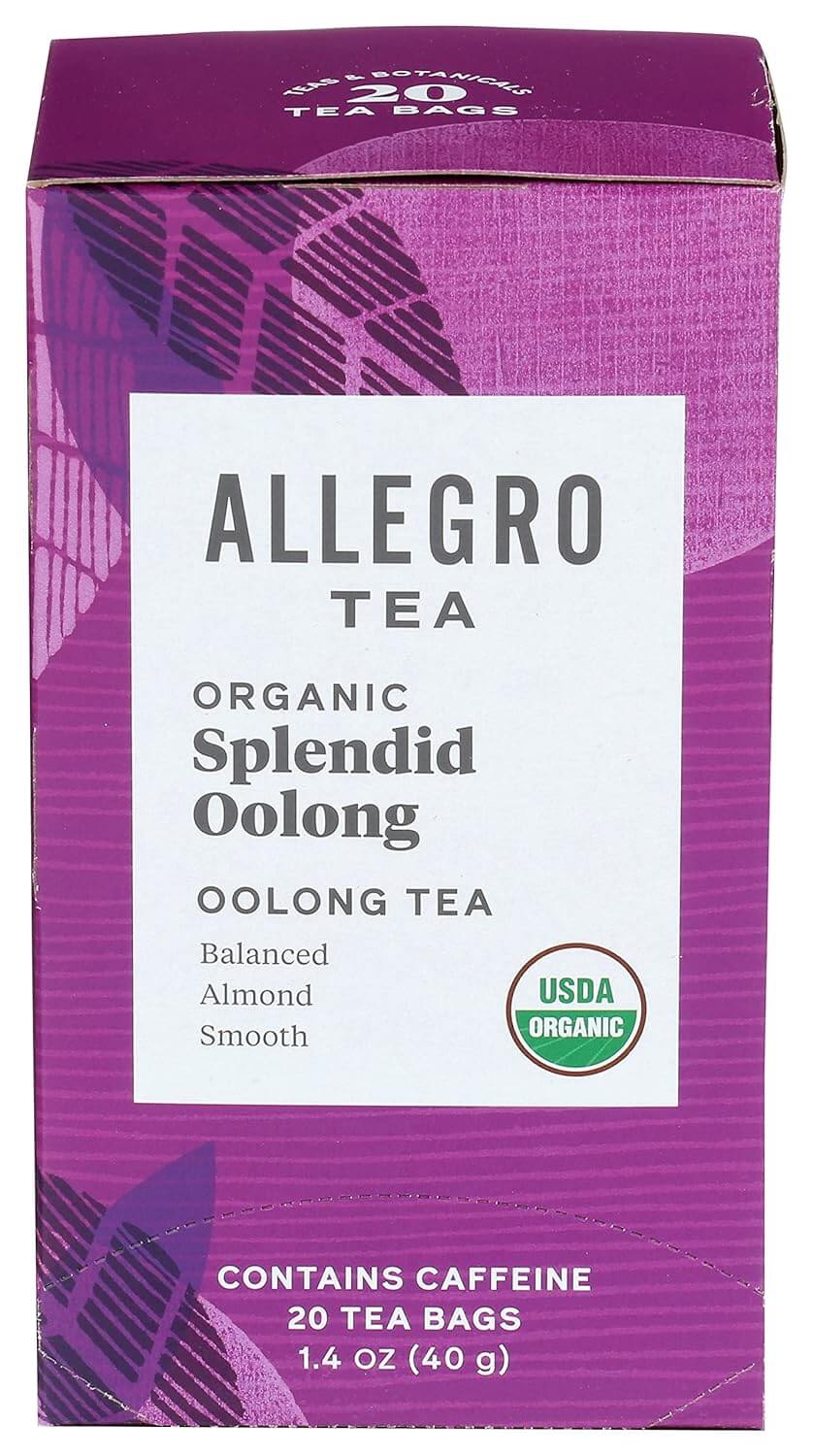
“Oolong teas aren’t often thought of as the best teas for energy; however, they are a source of caffeine and L-Theanine, just like black and green tea. Oolong tea can be heavily oxidized or lightly oxidized with a huge range of flavors as well as health benefits,” comments Live Zesty.
“Oolong tea is a type of semi-oxidized tea, falling between green and black tea type. Oolong tea is usually prepared using more tea leaves – sometimes even ten grams, using hotter water. Unroasted oolong tea, or tea containing lots of younger leaves, will have more caffeine,” states Simple Loose Leaf.
7. White
White tea is a type of tea that is known for its delicate flavor and subtle aroma. It is made from the young leaves and buds of the Camellia sinensis plant, which are carefully harvested and then lightly processed to preserve their natural characteristics. “White tea provides a subtle hit of caffeine and usually contains just 13 milligrams of caffeine per eight oz cup. So if you don’t tolerate caffeine well but still want a dose of productivity, this may be a good fit,” recommends Pique.
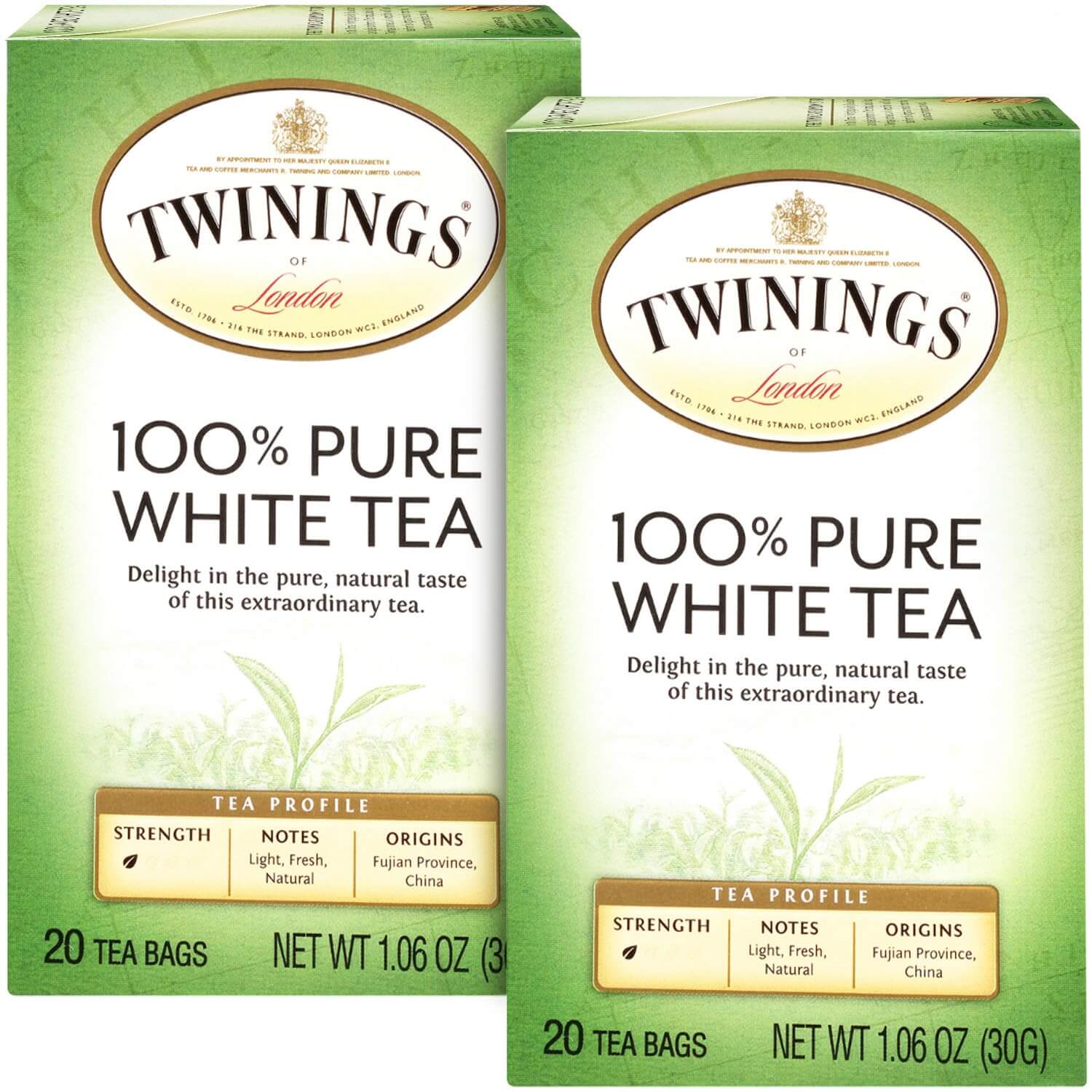
Twinings Pure White Tea Bags
“Even though white tea is often described as gentle and low on caffeine, this is not always the case. White tea may have a gentler and more delicate flavor but is likely to contain more caffeine than many black or green teas. For example, studies showed that Pai Mu Tan has around 18 mg of caffeine per gram of dry leaf. This is more than 11 mg per gram of dry Assam whole-leaf tea,” reports Simple Loose Leaf.
“White tea goes through the least amount of processing. When the buds are young, the tea leaves are still covered with fine white hair. These delicate leaves are harvested to make what is known as ‘white tea.’ For a gentle hit of caffeine, white tea is one of the best teas for energy. You can boost energy levels cup after cup throughout the day without overdoing the caffeine,” concludes Fire Belly Tea.
You might be interested in:
Sources:
Note: This article was not paid for nor sponsored. StudyFinds is not connected to nor partnered with any of the brands mentioned and receives no compensation for its recommendations.
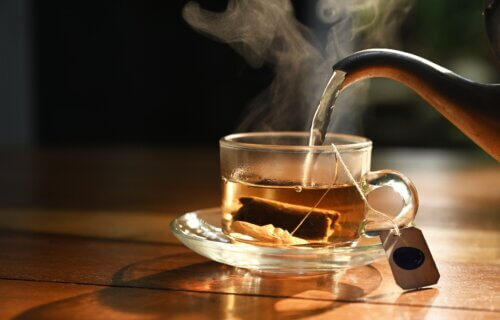
What about Red Bush or Rooibos as its called in SA..
Where can I get this tea? I need it.
100% “marketing” bullshit
I’m so interested to know much more about different types of Green & other Tea with health benefits to human life.
🤣🤣🤣🤣🫶🏽😛
I enjoyed reading the benefits of various tea’s listed, thanks 👍😊.
..